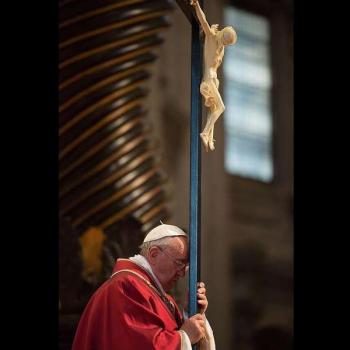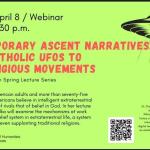Plymouth, England, Oct 18, 2017 / 06:01 am (CNA/EWTN News).- In 2018 one of England's historic monasteries will celebrate the millennium year of its foundation, offering a prime example of the contribution of monastic life to society amid an increasingly fast-paced world. For the Benedictine monks who inhabit Buckfast Abbey in Devon, reaching such a significant anniversary means “we are the inheritors of a great tradition,” Abbot David Charlesworth told CNA. “Place matters for Benedictines, so the fact that we are in a place that has been established for many centuries before we came is important.” Not only to Benedictine monks take the traditional vows of poverty, chastity, and obedience, they also make an additional vow of stability, meaning that when they are assigned to a monastery, they stay there. While they might travel or even spend time in other monasteries, they will always be attached to the original, as an individual would be to their family home. Charlesworth, who served as Abbot at Buckfast from 1992-1999, and was re-elected in 2009, said that in general, human beings “like the idea of roots.” The concept of monasticism is ultimately rooted in the Gospel and expressed through the Rule of St Benedict, he said, but it is also rooted “in place, in a place, and it is from there, out of that place, that we then live our Baptismal vocation expressed through our monastic vocation.” When it comes to living this vocation in modern times, the millennium landmark “helps to sort of galvanize our approach as to what we're doing for the future,” Charlesworth said. This, he added, encompasses “what we're doing personally, what we're doing as a community, and what we're doing as members of the Church of the Southwest of England.” The abbot spoke to CNA about the millennium anniversary during a sit-down interview inside one of the two main guest houses at Buckfast Abbey, located in Buckfastleigh, about 25 miles northeast of Plymouth. The abbey was founded in 1018 during the reign of King Cnut and entrusted to care of the Benedictines. The monks who inhabited the monastery followed the “Regularis Concordia” rule, which was drafted in Winchester around the year 970 for all Benedictine monasteries in an effort to re-establish, in a sense, monastic life. Just over 100 years later, in 1147, Buckfast became a Cistercian monastery. The Order was founded in 1098 by a group of monks seeking to live a simpler life in more strict observance of the Benedictine Rule. Under the Cistercians Buckfast thrived, exporting wool to Italy by the 14th century. By the 15th century, the monastery had in essence become a wealthy landowner, while continuing to run an almshouse and school, and support local parishes in the area. But in 1539 was shut down by the commissioners of King Henry VIII during the dissolution of the monasteries in a bid to confiscate the wealth of the country's religious institutes during the English Reformation. The monastery was immediately vacated, stripped and left to decay. During the more than 300 years that Buckfast was without monks, the monastery changed hands four times, eventually landing in those of Dr. James Gale in 1872, who decided to sell the property, but wanted it to go back to a religious community. Just six weeks after putting an advertisement in the paper, Buckfast was purchased by monks, who moved in shortly after, bringing a close to the 343 year gap in monastic presence at the abbey. That first group of monks who returned to Buckfast were Benedictines who had been exiled from France and had made their way to Ireland. They moved to Buckfast in 1882 after acquiring the abbey, and began the process of restoring the property. As the work was being carried out, the ruins to the original Cistercian design from the 1100s were discovered, and the monastery was constructed in its modern form from the ancient layout. The abbey was consecrated in 1932, with the final stone of the large bell tower being laid in 1937. Now in 2017, the monastery is again a thriving presence in Devon. Not only does Buckfast represent a silent spiritual hub for tourists or visitors who want to get away for a day of prayer, but it also boasts of several other major activities available for people throughout the area. The Buckfast monks essentially serve as the board of trustees for the St. Mary's grade school that sits on their property, and the abbey hosts a center for evangelization called the School of the Annunciation, which was established as a response to Church's call for a new evangelization. The school offers formation to adults from all walks of life, and it also holds the status of a Catholic Institute for Higher Learning, providing distance-learning opportunities for students to obtain Master's Degrees in Catechesis and Evangelization, validated by the Franciscan University of Steubenville, Ohio. Buckfast also has a large conference center where they host various congresses and retreats throughout the year, including for non-Catholic groups. The monastery also offers two refurbished guest houses for pilgrims and tourists to stay. They also have private houses available to rent if people want a longer get-away. Buckfast also has a cafeteria and an adoration chapel open to visitors. Monks also offer pilgrims the opportunity to pray Vespers with them every evening. The abbey is known throughout the UK for a tonic wine they brew called Buckfast Tonic Wine. Originally brewed for medicinal purposes, the wine is controversial in some areas of the UK due to its unique recipe, which contains high amounts of alcohol infused with high levels of caffeine. Reminiscent of the monastery's early centuries, Buckfast, which is strategically placed beside the River Dart that runs through the area, also generates their own power with a water turbine that provides enough energy not only for their own grounds, but for locals in the nearby area who want to purchase it for their own homes and neighborhoods. Another means of income for the monastery is renting grazing ground for local farmers. Several acres of land had been purchased for Buckfast when it was established in order to preserve the silence of the monastery and ensure that the monks were truly removed with few distractions. However, since the swath of land owned by Buckfast largely serves as a buffer-of-sorts from the outside world, they rent out certain patches to local farmers who need fresh grazing land. And while Buckfast can't quite claim to be celebrating 1,000 years of having monks on the property, the millennium anniversary of the monastery's foundation is recognized as a monumental event not only for the abbey, but the entire region. Preparations for the anniversary have been underway for 10 years. According to Charlesworth, “not only do we reassess the physical environment of the monastery, but we reassess our spiritual lives as well.” “Everything is integrated, it's an integrated system,” he said, noting that while the monks themselves have had retreats and meditations to reflect on, the structure of the monastery itself has also been cleaned and renovated, from the base of the Church floor to the top of the bell tower. Paintings depicting the history and reconstruction of the monastery have also been produced, and vestments woven in honor of the upcoming anniversary. Exhibits on Buckfast and monasticism are also set to be unveiled, and study workshops are scheduled exploring the role of Christian monasticism both in the past and in the present. The famous image of Our Lady of Buckfast that greets visitors as they approach the monastery was also redone. Crafted by a local artist with her neighbor and her neighbor's baby as models, the statue depicts a smiling Mary holding a smiling infant Christ in a relaxed pose on her hip. Based on the medieval original, which was destroyed during the sacking of the monastery in the 1500s, the statue, according to Charlesworth, is meant to depict “the joy of motherhood.” “You don't typically see statues like that,” with Mary's soft but full smile, and her relaxed pose, he said, explaining that when he initially commissioned the statue in 2012, “I specifically asked that be emphasized...the smiling motherly face of Mary and child.” When pilgrims arrive, he explained, they see Christ “smiling and looking at them as a child – because he was a child – and there is Mary looking at her Son in the joy of motherhood.” Various liturgical events are also set to take place, with three major Masses scheduled throughout the year. The first will take place on the May 24 feast of Our Lady of Buckfast, which will mark the diocesan celebration. The bishops of England, Wales, and Scotland will all be invited to the Mass. Parish priests and representatives of parishes in the area will also be invited. The next major liturgical event will be the singing of Vespers by the abbey choir on the July 11 feast of St. Benedict. Members of both civil society and the Church of England will be invited for a civic and ecumenical celebration of the anniversary. Another Mass will be offered on the Aug. 25 feast of the Dedication of the Abbey, which will be more of a community celebration for the abbey parish staff and their families. On Oct. 27 a Votive Mass will be offered for the Oct. 27 feast of Saints Simon and Jude, which will be celebrated by the Benedictine Abbot Primate, Gregory Polan of Conception Abbey in Missouri, who will come in from Rome for the celebration. The Mass will primarily be for the monks and nuns o the Benedictine family, particularly those from France and in Germany, since the first monks to re-settle Buckfast in the 19th century were French and German. With around 120 employees on staff and 3-400,000 visitors a year, Buckfast is far from a small presence in the area. However, there are only 15 monks, including Abbot Charlesworth, who live in the enclosed monastery of the abbey. But according to Charlesworth, “the vitality of a monastic community witness does not depend so much on the age or number of members as on their manner of living the monastic life.” Going into the future, he hopes Buckfast Abbey is able to offer a concrete service based on “Christ-centered hospitality” to the mission of the Church as a whole, but specifically the pilgrims who come. “The monastic life itself is our way of participating in the mission of Christ and his Church,” the abbot said, adding that it offers both the Church and the world “a strong clear sign of the very nature of the Christian life.” Though the monks are enclosed, that doesn't mean they are inactive or that their presence isn't felt, he said, because if lived properly through a life of prayer and asceticism, monastic life “assumes an evangelical importance, being the attitude and behavior which demonstrates our faith at the point of contact with each other and the world.” “To witness the contentment and pleasure that others experience here is a great joy,” he said, noting that for many of Buckfast's visitors, the monastery is a place “where they are uplifted and find peace,” which in itself is “an important source of encouragement.” This opportunity for peace, joy and renewal is a primary way to evangelize, particularly amid a busy and often hectic rhythm, he said. Evangelization, he said, “should seek to orientate our human freedom towards God, who is the source of truth, goodness and beauty.” Because of this, a life of prayer is also a mode of evangelization, he said, explaining that “the Spirit given to us in prayer and the sacraments encourages us to spread the Good News of Jesus in word and deed” to the community, and to visitors. “For us, the three-fold mission of liturgy, hospitality and evangelization helps us to express our commitment, through our monastic calling to the life of the Gospel,” Charlesworth said, stressing that “we do not have to work away from the monastery to bear witness to Jesus.” “Within the monastic enclosure, if we are willing to cooperate with each other and collaborate with those who share our vision, we have the resources to bring hope and joy to those in need.” Read more




















